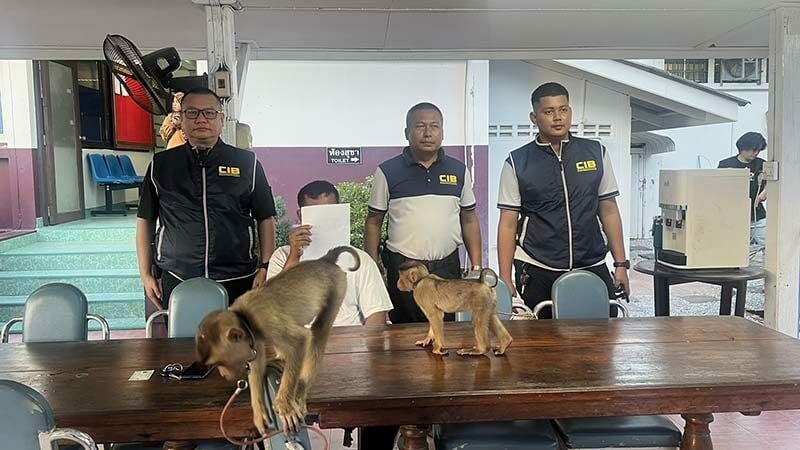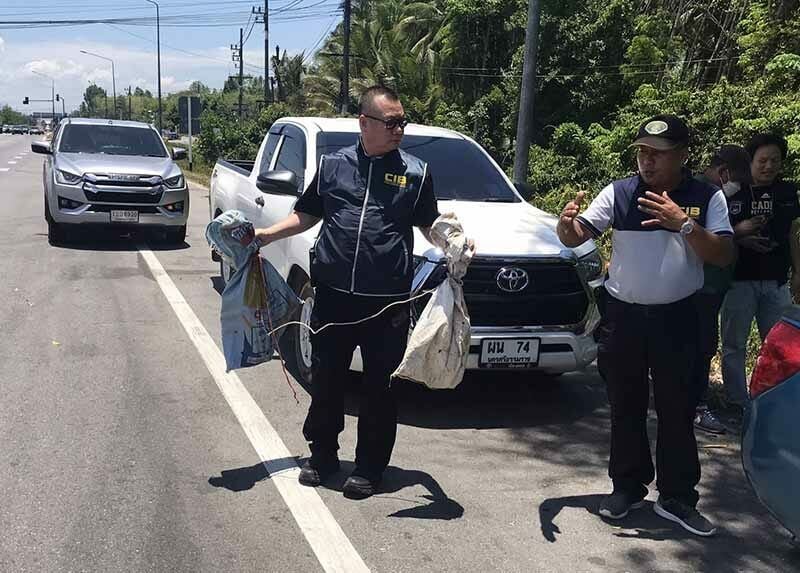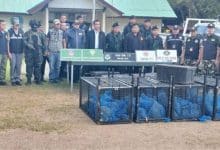Wildlife trafficker nabbed with protected macaques in Narathiwat

The Thai authorities recently apprehended a wildlife trafficker in a sting operation today, seizing two protected macaque monkeys confined in fertiliser bags. The suspect, 32 year old Haisu Salaere, was caught red-handed in Narathiwat province while attempting to sell the animals, which he admitted to capturing and training for obedience and tasks.
Narathiwat police, in collaboration with the Provincial Police Region 9, arrested Haisu at an intersection in the Mueang district. He faces charges for possession and trafficking of protected wildlife without permission.
The macaques, listed as protected species number 150, were discovered in two ventilated fertiliser bags. The investigation was spurred by a Facebook post in a group dedicated to primate care, where Haisu advertised the sale of the macaques for 4,500 and 5,000 baht respectively.
Upon interrogation, Haisu confessed to capturing the macaques from a forest near his village and training them to follow commands and perform various tasks. He claimed that trained macaques fetch higher prices, which motivated his illicit activities. Following his confession, Haisu was taken into custody at the Mueang Narathiwat police station to face legal proceedings.
This case highlights the ongoing illegal wildlife trade and the exploitation of vulnerable species. Macaques, often perceived as adaptable and trainable, are unfortunately frequent targets for such trades. The authorities’ swift response reflects the seriousness with which Thailand regards the protection of its wildlife and the enforcement of laws to combat trafficking.
The confiscated animals are typically cared for and rehabilitated by wildlife officials, with the hope of reintroducing them into their natural habitat if possible.
The public is reminded that the purchase of wildlife, especially protected species, not only fuels the illegal trade but also contributes to the decline of these animals in the wild. Efforts to protect and conserve wildlife require public awareness and participation in reporting any suspicious activities related to wildlife trade, reported KhaoSod.

Latest Thailand News
Follow The Thaiger on Google News:


























